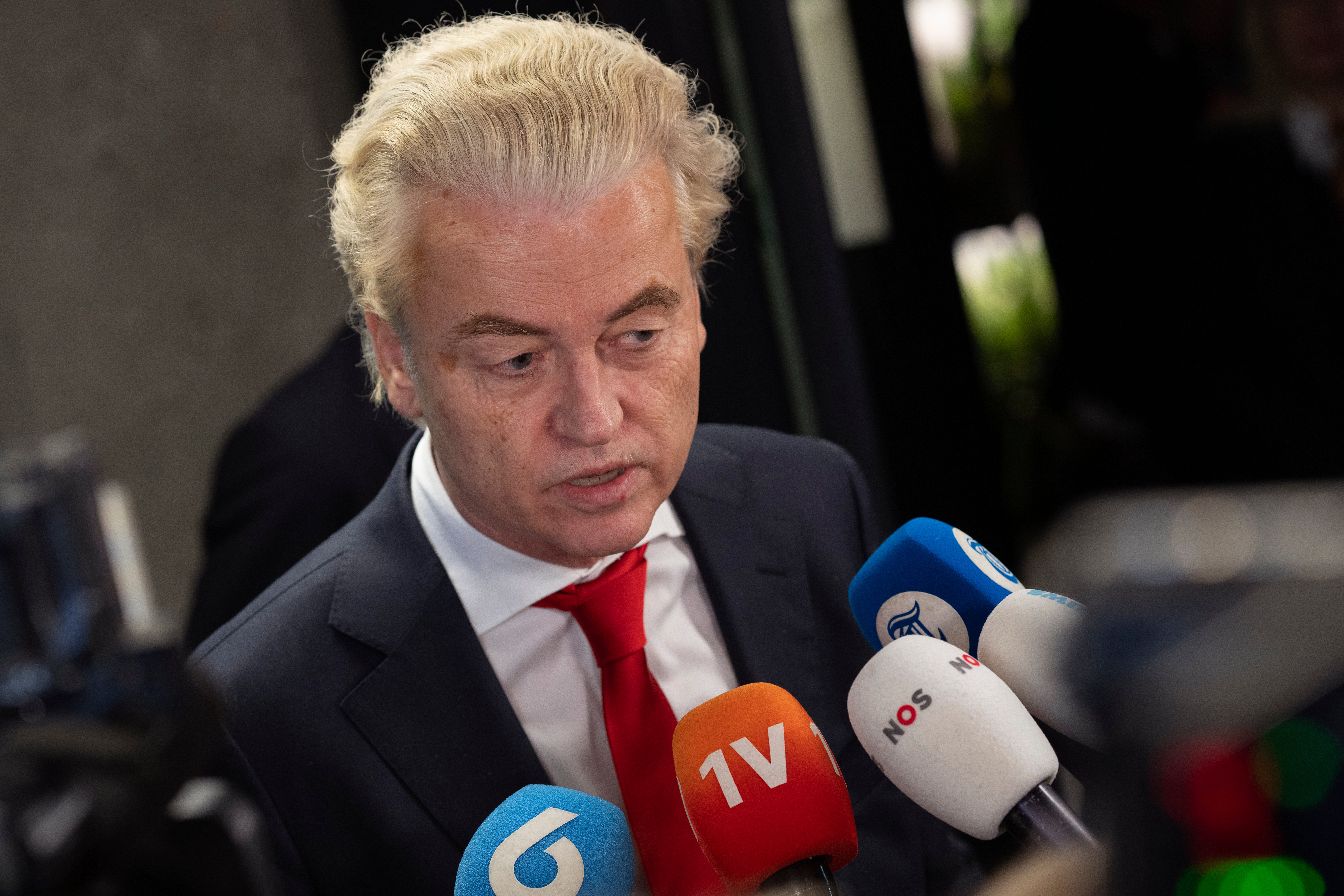Geert Wilders tips 2 new officials to lead the next round of coalition talks after his election win
The Dutch parliament has named two new go-betweens to lead negotiations to form the next ruling coalition

Your support helps us to tell the story
From reproductive rights to climate change to Big Tech, The Independent is on the ground when the story is developing. Whether it's investigating the financials of Elon Musk's pro-Trump PAC or producing our latest documentary, 'The A Word', which shines a light on the American women fighting for reproductive rights, we know how important it is to parse out the facts from the messaging.
At such a critical moment in US history, we need reporters on the ground. Your donation allows us to keep sending journalists to speak to both sides of the story.
The Independent is trusted by Americans across the entire political spectrum. And unlike many other quality news outlets, we choose not to lock Americans out of our reporting and analysis with paywalls. We believe quality journalism should be available to everyone, paid for by those who can afford it.
Your support makes all the difference.The Dutch parliament named two new go-betweens Wednesday to lead negotiations to form the next ruling coalition, four months after the anti-immigration party led by Geert Wilders won a national election.
The appointment of economist and former lawmaker Elbert Dijkgraaf, and Richard van Zwol, a former senior civil servant who now sits on a key government advisory panel, sets the stage for a new phase in government talks.
Four parties — Wilders' Party for Freedom, the center-right People's Party for Freedom and Democracy, the reformist New Social Contract and pro-agriculture populist Farmer People Movement — are seeking to build what they are calling a “program Cabinet” made up of politicians and experts from outside politics.
Together the parties hold 88 of the 150 seats in the lower house of parliament.
Speaking in a parliamentary debate, Wilders told lawmakers that the talks would “finally start negotiating about policies to build a new Cabinet.” He said that the latest round of negotiations would take a maximum of eight weeks.
Wilders pledged that the new government would “tackle the big problems in this country.”
One of the other leaders who will be at the negotiating table, Pieter Omtzigt of the New Social Contract, sounded a note of caution even before the talks could begin.
“They won't be easy negotiations,” he told lawmakers.
Although his party won the most seats in the election, Wilders conceded last week that he doesn't have the support of his prospective coalition partners to become prime minister.
Even so, with its strong election showing and polls indicating that his support has grown since the Nov. 22 victory, Wilders' party will remain the driving force behind the next administration.
He said that it wasn't yet clear who could become the next premier.
The populist far right in a polarized political landscape has been on the rise for years in Europe, but Wilders’ election victory still came as a shock to the Netherlands and well beyond.
He has in the past called for a ban on mosques, Islamic schools and the Quran, but in a concession to his prospective coalition partners in January, he withdrew draft legislation to implement the bans.